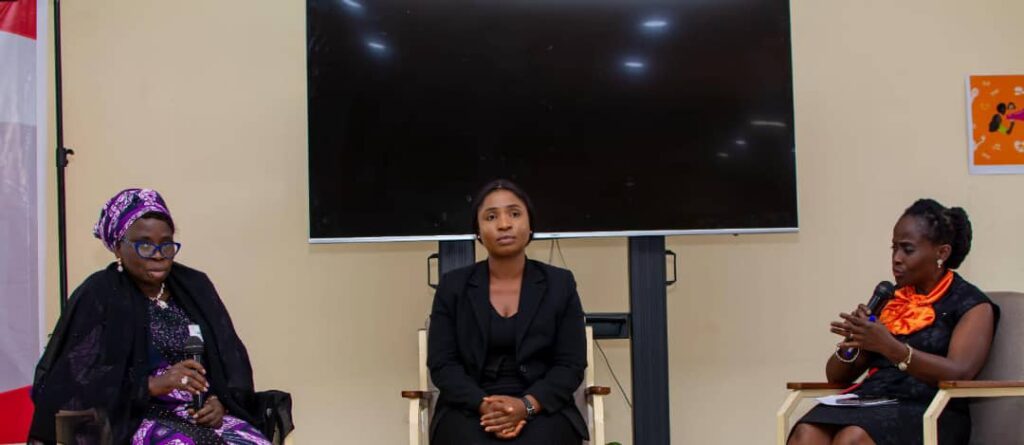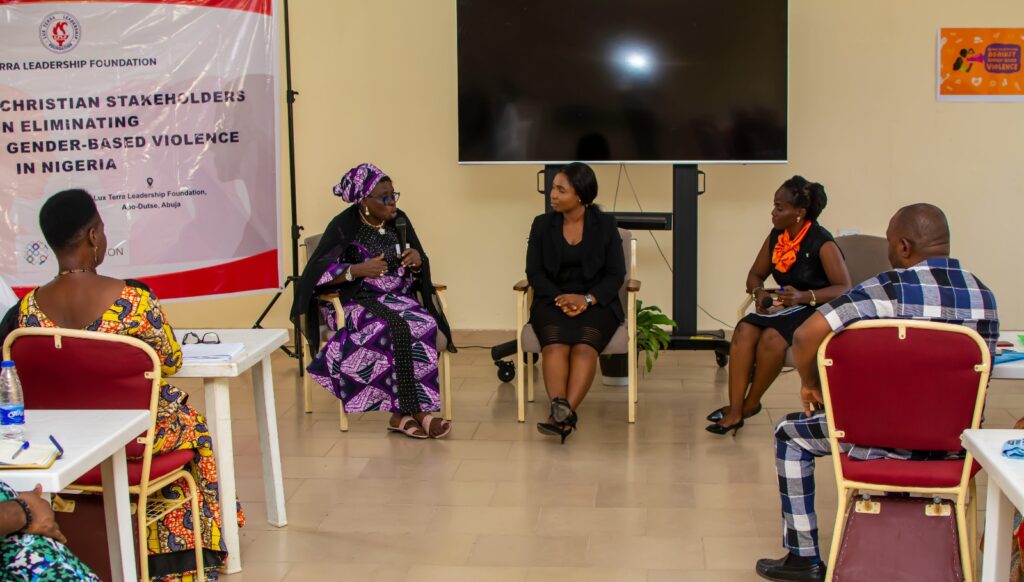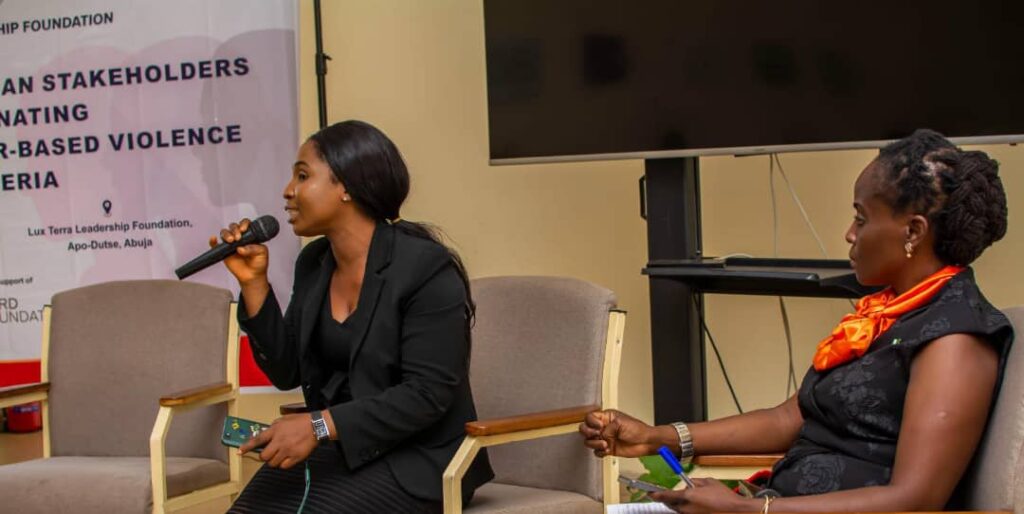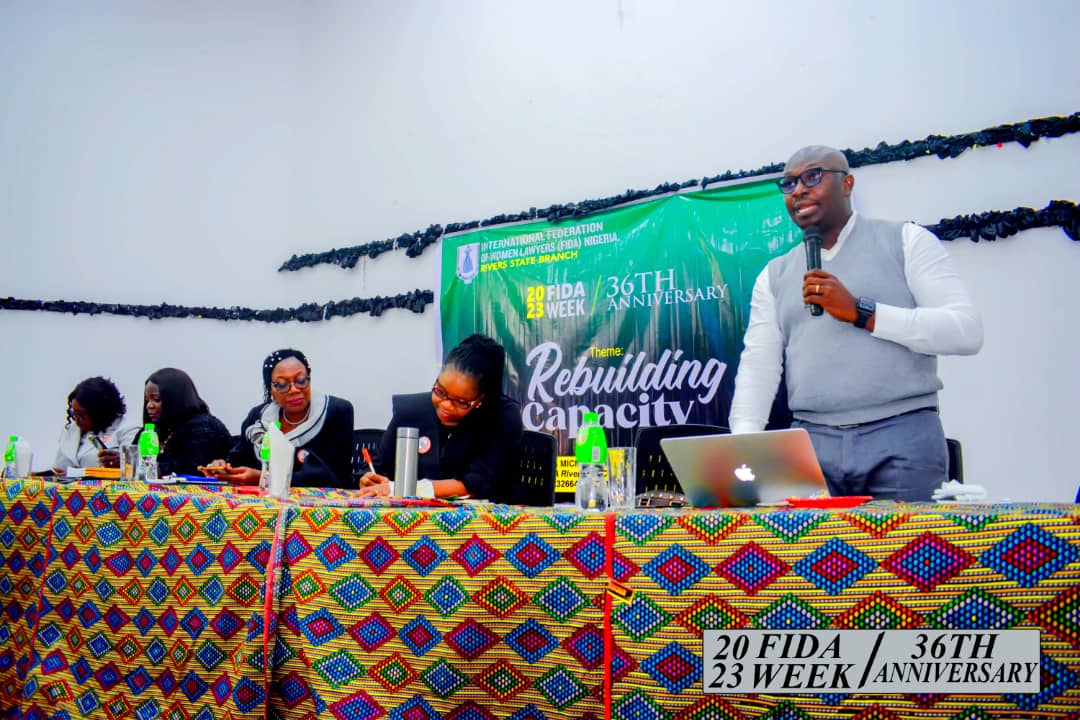
FIDA Rivers Launches Weeklong Celebration with Insightful Legal Forum: Dame Aleruchi Cookey-Gam Leads CLE Session on Sustainable Development
The long-awaited FIDA WEEK/36th Anniversary kicked off in grand style on December 6, 2023, as legal minds gathered for a thought-provoking Continuing Legal Education (CLE) session. The event featured Dame Aleruchi Cookey-Gam as the lead speaker, passionately delving into the theme “Rebuilding Capacity, FIDA Rivers at 36: Embracing Innovation, Technology, and Opportunities for an all-inclusive Sustainable Development.”
Joining the discourse were distinguished speakers, with Associate Professor Boma Toby sharing insights on “Charting a Path in Insurance Law,” and the third speaker, Mr. Ene Donald, Ph.D., shedding light on “The Importance of AI in Legal Research and Practice.”
Guiding the dynamic discussion was Mrs. Evelyn Membere Asimea, the Deputy Country Vice President of FIDA Nigeria, who served as the adept moderator.
This CLE session transcended professional boundaries, drawing a diverse audience of lawyers, non-lawyers, partners of FIDA Rivers State branch, and Associate members, including students from the Rivers State University and University of Port-Harcourt Chapters. The inclusive nature of the event fostered a rich exchange of ideas and perspectives.
As FIDA Rivers embarks on its 36th year of impactful advocacy, the opening CLE session not only marked the commencement of a weeklong celebration but also set the stage for a collaborative exploration of innovation, technology, and sustainable development in the legal sphere. The engaging discussions and diverse participation underscored FIDA Rivers’ commitment to fostering a dynamic and inclusive legal community.
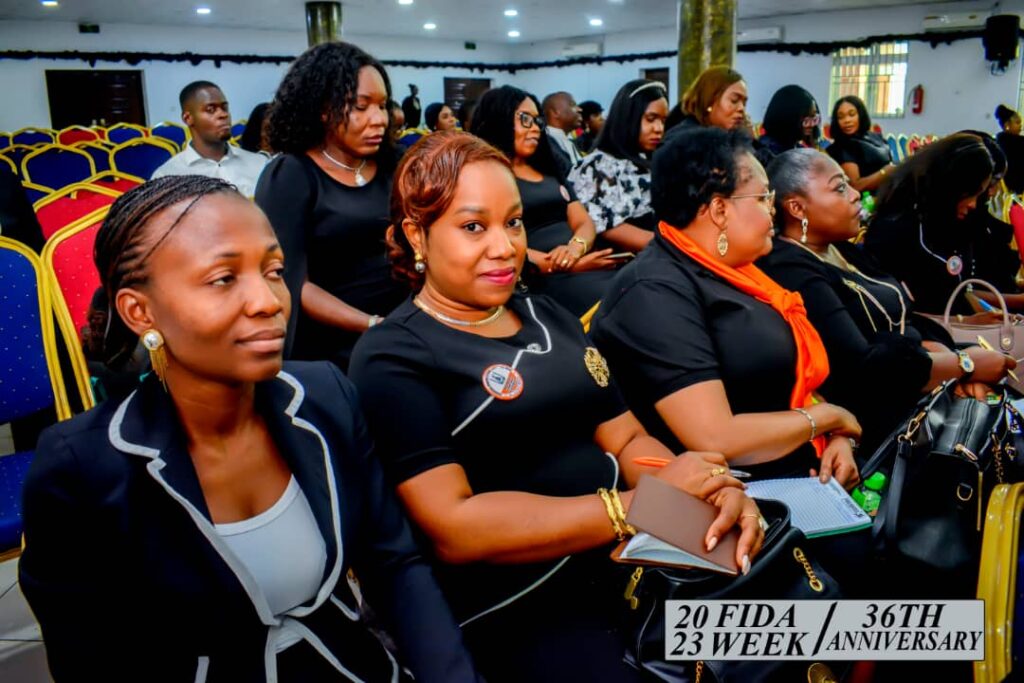
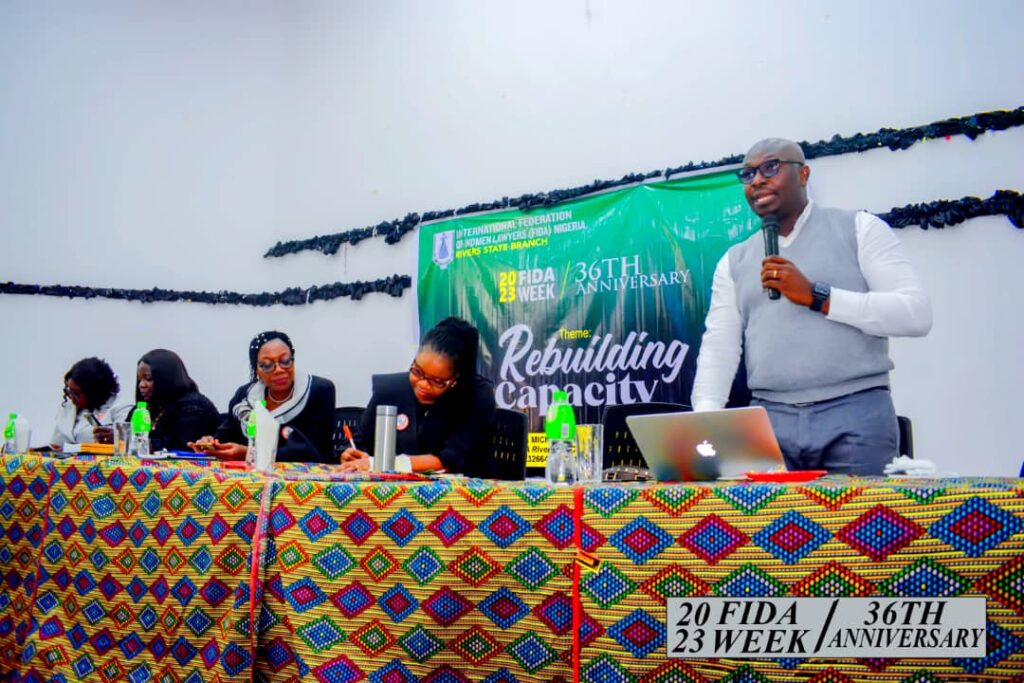
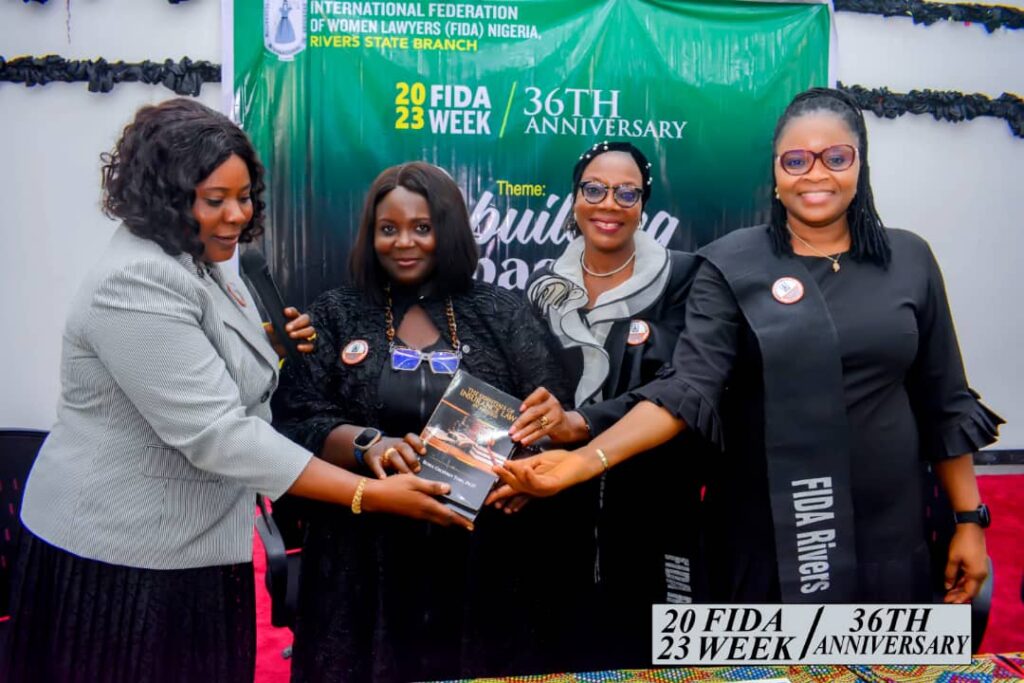
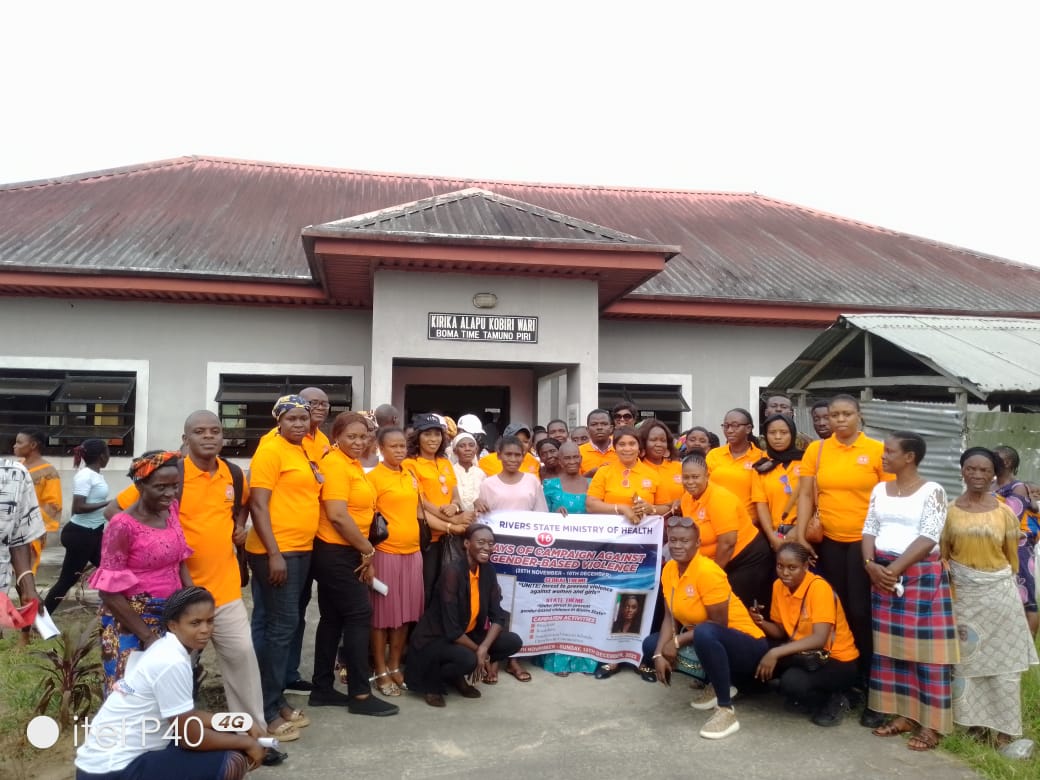
FIDA Rivers Champions Change: A Chronicle of Empowerment in the Fight Against Gender-Based Violence
FIDA Rivers took an active stand against Gender-Based Violence (GBV) by participating in the impactful 16 Days Activism Campaign organized by the Rivers State Ministry of Health, in collaboration with the Institute of Human Virology Nigeria (IHVN) Rivers State, alongside a coalition of other stakeholders and Non-Governmental Organizations (NGOs). Among the esteemed participants were FIDA Rivers State Branch, Rainbow Watch and Development Centre, D-Ability Initiative, CISHAN Rivers State, Greater Women Initiative for Health Rights, and the National Agency for the Prohibition of Trafficking in Persons (NAPTIP) Rivers State, among others.
Themed “UNITE! INVEST TO PREVENT VIOLENCE AGAINST WOMEN AND GIRLS” in Rivers State, the campaign aimed to raise awareness and prevent violence against women and girls. The event commenced with an uplifting praise and worship session, followed by opening remarks from notable figures, including Dr. Mary Obisike, the Gender Focal Person for the Ministry of Health, Rivers State, and Hon. Dr. Enyinada Cookey-Gam, Chairman of Opobo/Nkoro.
Distinguished personalities, such as Hon. Mrs. Lydia Owutubo, the Special Adviser to the Governor on Gender, and Hon. Senibo Goodwill Pepple, shared insights and goodwill messages. Dr. Stanley Idakwo, the Programme Manager of IHVN in Rivers State, praised the collaborative efforts and highlighted the significant support from the Local Government.
Throughout the program, informative presentations were delivered by experts, covering various aspects of gender-based violence. Mary Nzeli from IHVN discussed the consequences of GBV, Michael Lenee Gbarale of Rainbow Watch and Development shared responses to GBV, and Hajiya Sally from NAPTIP focused on child trafficking. Representatives from FIDA, Rivers State, shed light on the legal implications of GBV, while Dr. K. U. Nwanyanwu addressed the intersection of GBV and disability rights.
The impactful event reached its zenith with Hon. Senibo Goodwill Pepple emphasizing the importance of collaboration and unity in eradicating violence against women, girls, and men. The team extended their efforts to Nkoro Town, replicating the success of the program.
In conclusion, the 16 Days Activism Campaign against Gender-Based Violence, orchestrated by the Rivers State Ministry of Health with IHVN’s support and collaboration with NGOs, represents a pivotal stride in raising awareness and preventing gender-based violence in Rivers State. This collective effort holds the promise of fostering a safer and more inclusive society for women and girls in the region.
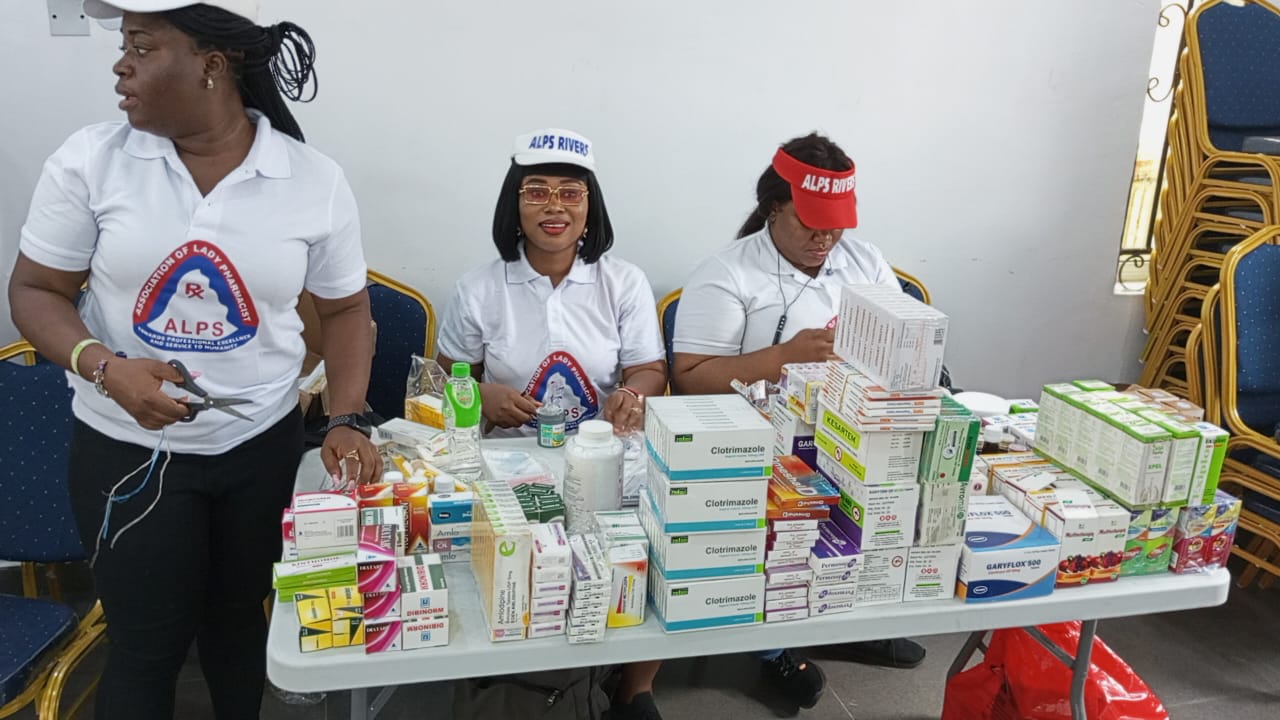
FIDA Rivers Empowers Opobo/Nkoro Community: A Compassionate Outreach and Legal Clinic during FIDA Week/36th Anniversary
In a gesture of empowerment and community engagement, FIDA Nigeria, Rivers State Branch, orchestrated a transformative community outreach and legal clinic on December 7, 2023, as part of its FIDA Week/36th Anniversary activities. The event unfolded in the heart of Opobo/Nkoro Community in Rivers State, leaving an indelible mark on the lives of those it touched.
The program commenced with a heartfelt prayer led by Mrs. Felicia, the women leader, setting a tone of unity and purpose. Mrs. Adata Bio-Briggs, the Chairperson, then delivered opening remarks, articulating the significance of the visit to the attending women.
A series of enlightening sessions unfolded, delving into the provisions of the VAPP Law, Child Rights Law, Constitutional Rights, and the importance of moral living. The engagement was interactive, featuring a robust question and answer session, ensuring clarity on any lingering uncertainties.
Beyond informative discussions, the community members were offered access to vital medical services. The Engraced Life Foundation spearheaded free Breast Cancer Screening, while the Association of Lady Pharmacists and Nigerian Medical Association Rivers State provided medical checks and complimentary medications. The event also witnessed charitable donations, extending support to those in need.
Crucially, the outreach provided a platform for free legal clinic services and counseling, reinforcing FIDA Rivers’ commitment to empowering and uplifting the community. This initiative not only marked a significant chapter in FIDA’s ongoing efforts but also exemplified the organization’s dedication to making a positive impact on the lives of individuals within the Opobo/Nkoro Community.
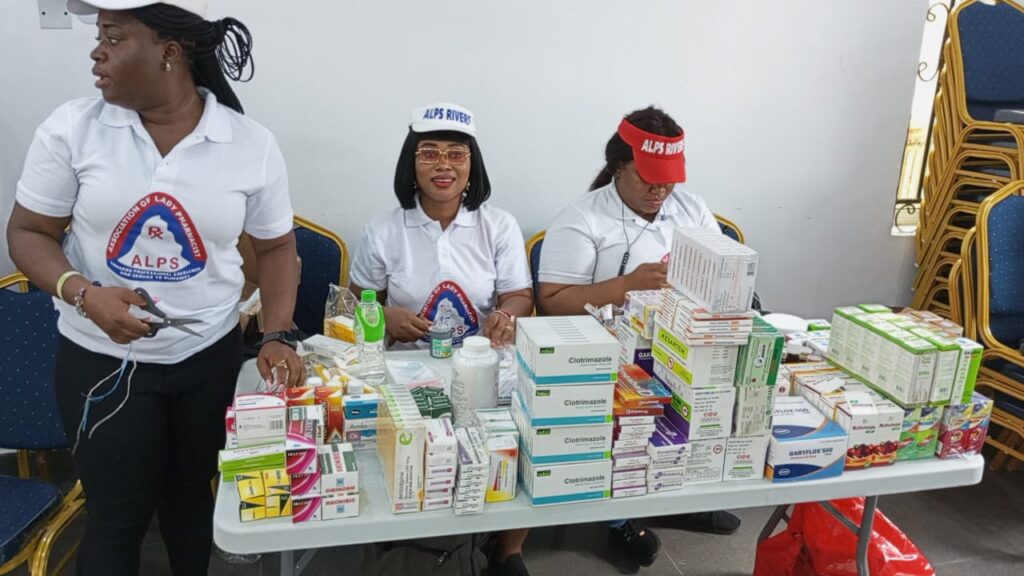
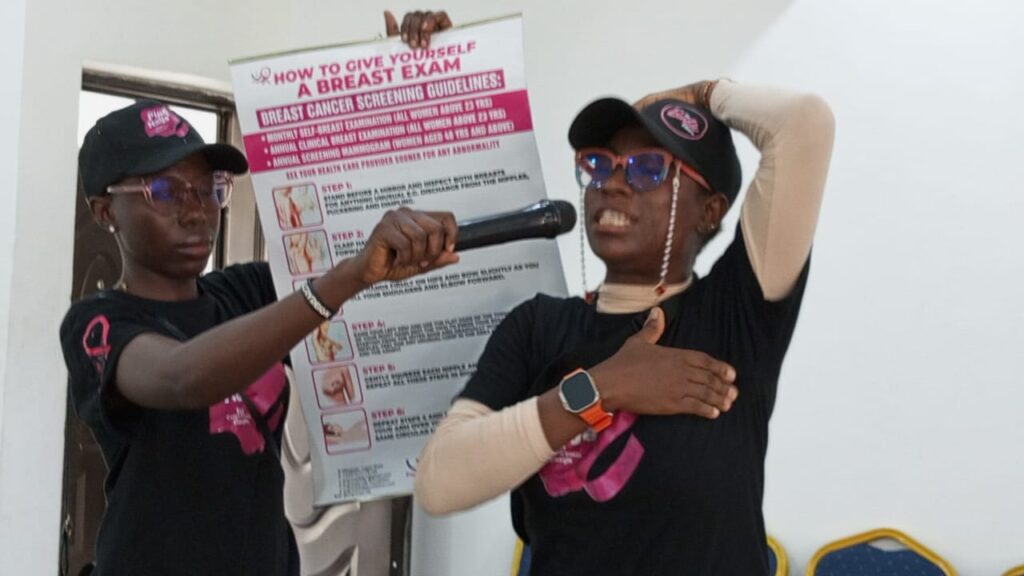
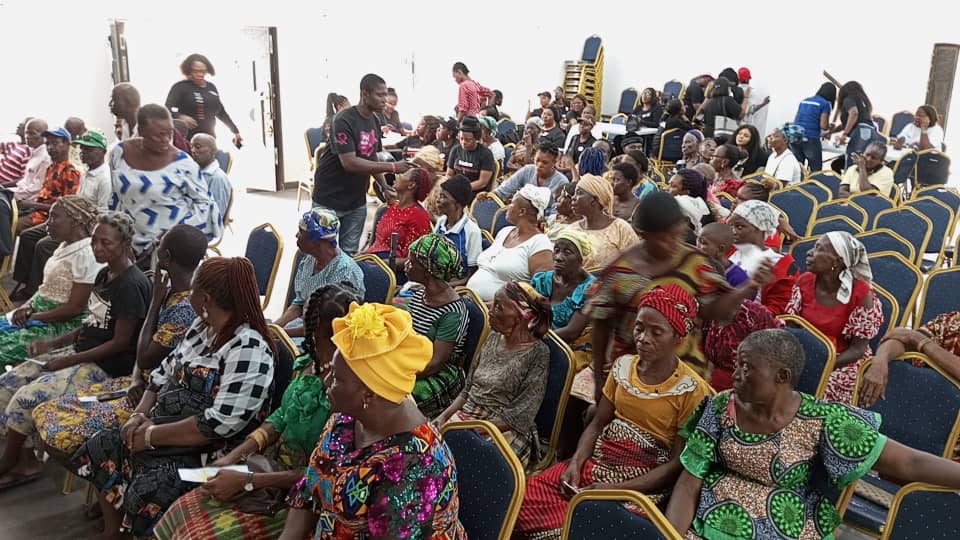
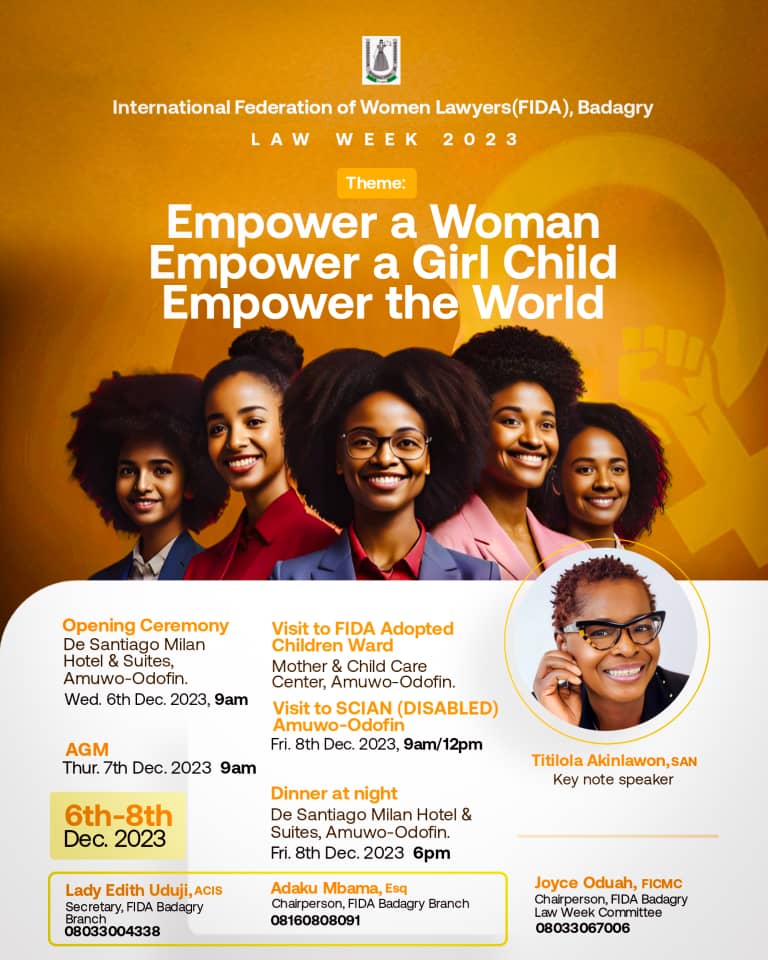
FIDA Nigeria Badagry 2023 Annual Law Week: Empowering Women and Girls, Transforming the World
The Badagry branch of the International Federation of Women Lawyers (FIDA Nigeria) is thrilled to announce the commencement of its annual Law Week from Wednesday, December 6, to Friday, December 8, 2023.
In a recent press release shared with NEWSWIRE Law & Events magazine, the focal point of this year’s event is encapsulated in the theme, “EMPOWER A WOMAN, EMPOWER A GIRL CHILD, EMPOWER THE WORLD.”
The Law Week activities will unfold at De Santiago Milan Hotel & Suites in Amuwo-Odofin, Lagos, kicking off at 9 am daily. A key highlight is the Opening Keynote Address, set to be delivered by the esteemed Titilola Akinlawon, SAN. This thought-provoking presentation will be further explored by distinguished panelists Abimbola Akeredolu, SAN, and Jean Chiazor Anishere, SAN.
An essential component of the Law Week is the Annual General Meeting (AGM), scheduled for Thursday, December 7th, at 9 am, hosted at the FIDA Badagry Branch Secretariat.
FIDA Badagry Branch will also extend its impact beyond the legal realm with activities like a visit to the children’s ward at the Mother and Child Care Centre, along with a visit to the SCIAN (Disabled) facility in Amuwo-Odofin. These visits, slated for Friday, December 8, from 9 am to 12 pm, underscore FIDA’s commitment to community engagement and social responsibility.
The culmination of the Law Week will be marked by a grand Dinner on Friday, starting at 6 pm, held at De Santiago Milan Hotel & Suites, Amuwo-Odofin, Lagos. This celebration promises to be a fitting conclusion to a week dedicated to legal discourse, empowerment, and community outreach.
Stay tuned for updates and highlights as FIDA Nigeria Badagry 2023 Law Week unfolds, making a positive impact in the pursuit of empowerment and justice.
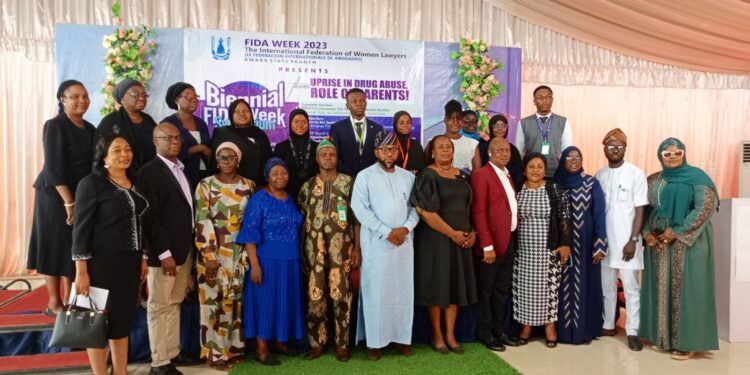
NDLEA Issues Warning on Rising Threat of Online Drug Sales, Urges Vigilance Amidst FIDA Week 2023
In a startling revelation at the FIDA Week 2023 celebrations organized by the International Federation of Women Lawyers (FIDA) in Kwara state, the National Drug Law Enforcement Agency (NDLEA) raised a red flag concerning the escalating issue of online drug sales. Ibrahim Mohammed, the state commander of NDLEA, addressed the audience on the pressing concern during his keynote speech titled “Uprise in Drug Abuse: Role of Parents.”
Describing the phenomenon as a global challenge, Mohammed shed light on the prevalence of online drug sales, often facilitated through the dark net. This new dimension in the drug abuse problem allows transactions to occur without the seller and buyer being aware of each other. Mohammed emphasized the urgency of addressing this issue, particularly as it has become increasingly common in the country.
To combat the menace, the NDLEA has been working to intercept these online transactions, focusing on tracking deliveries from neighboring states through commercial vehicles. The agency has also intensified its patrol efforts and gathered intelligence to effectively address the issue.
Acknowledging the potential surge in online drug sales during the approaching Yuletide period, Mohammed commended the proactive support of the state governor, Mallam Abdulrahman Abdulrazaq, who has provided infrastructure to bolster efforts against this growing problem.
Highlighting the link between drug abuse and the rising crime rate, Mohammed stressed the importance of protective factors such as family harmony, positive parenting, and effective monitoring of children. He asserted that there is no crime without a drug undertone, emphasizing the need for a collaborative effort to tackle the issue.
Gloria Okoduwa, the state chairperson of FIDA, echoed the concerns raised by NDLEA and emphasized the impact of phones on family dynamics, with family discussions often neglected. FIDA announced plans to launch a campaign against drug abuse and its effects in major markets and public places in the state.
Okoduwa emphasized the need for parents to be actively involved in their children’s lives, urging against judgmental attitudes and advocating for effective monitoring. The FIDA Week 2023 committee chairperson, Hajia Muinat Adeleye, lamented the pervasive nature of drug abuse in the country and called for concerted efforts to address the problem, urging parents to prioritize their children’s well-being over career and business pursuits. She particularly advised against providing phones to underage children in light of the prevailing socioeconomic challenges.
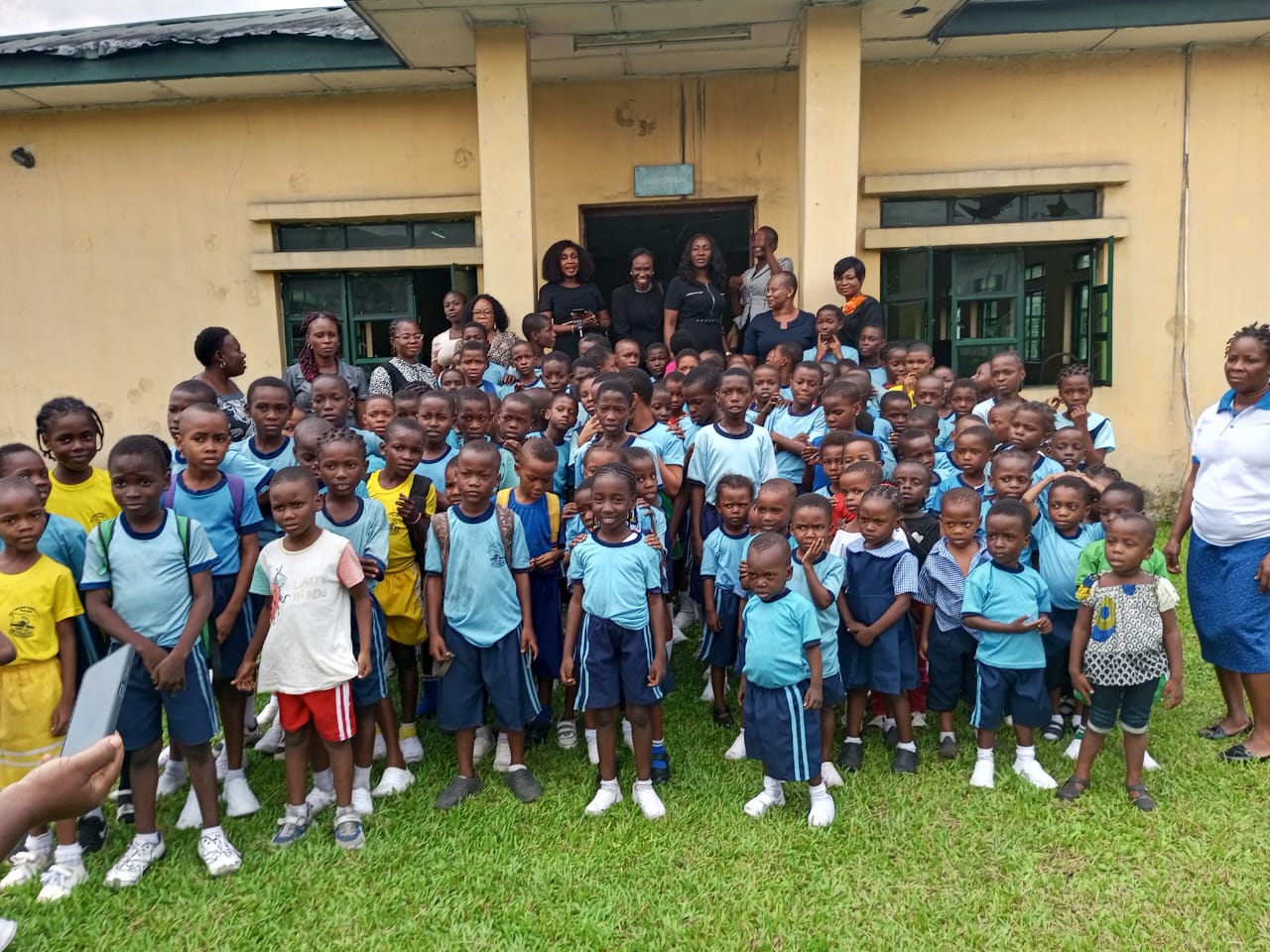
FIDA Rivers’ Educational Outreach at Port Harcourt Primary School in Commemoration of 16 Days of Activism
FIDA Rivers, on Wednesday, November 29th, 2023, extended its reach to Port Harcourt Primary School, Old GRA, as part of our ongoing school sensitization program. This visit was particularly significant, aligning with the 16 days of activism against Gender-Based Violence.
During the interactive session, pupils delved into crucial topics, fostering a holistic understanding of personal safety, sexual violence prevention, manners, etiquettes, and an awareness of rights and responsibilities. The discourse was not only insightful but also served as an educational and eye-opening experience for all participants.
The school management expressed gratitude to FIDA Rivers State Branch for imparting valuable knowledge and making a positive impact on the children.
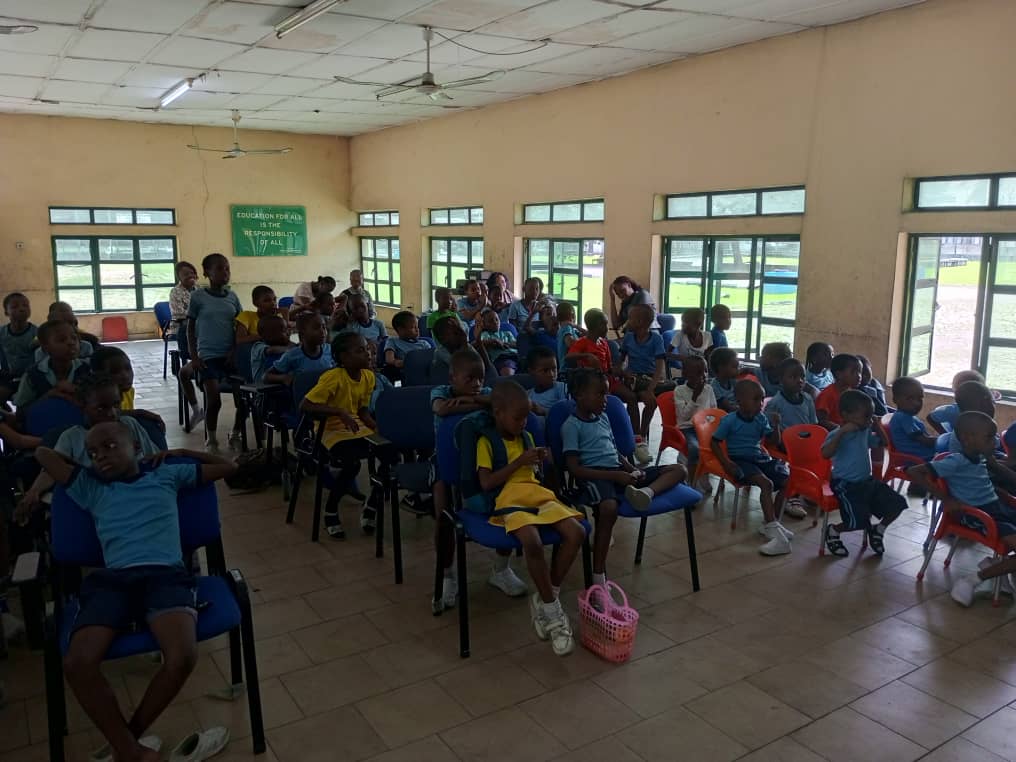
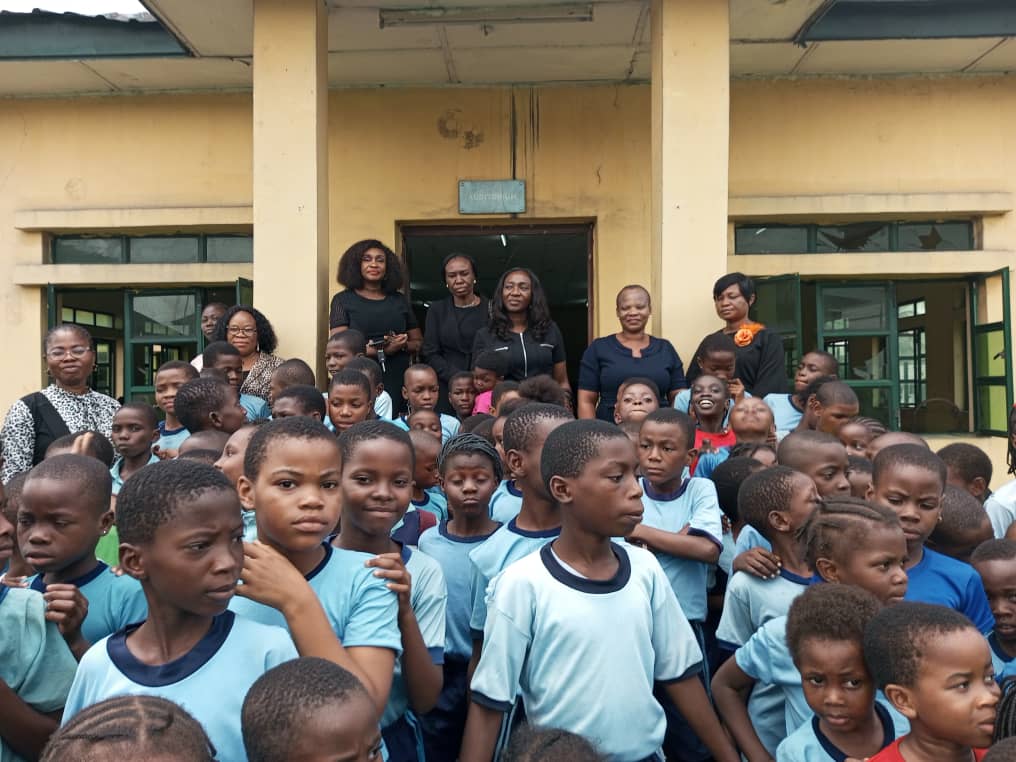
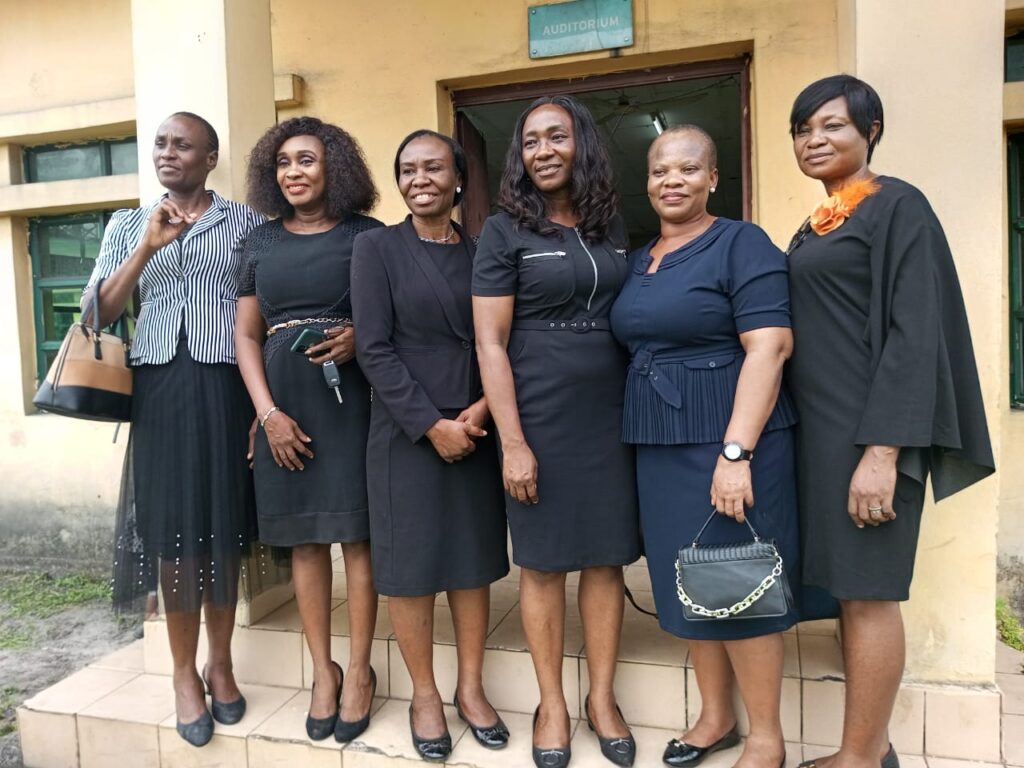
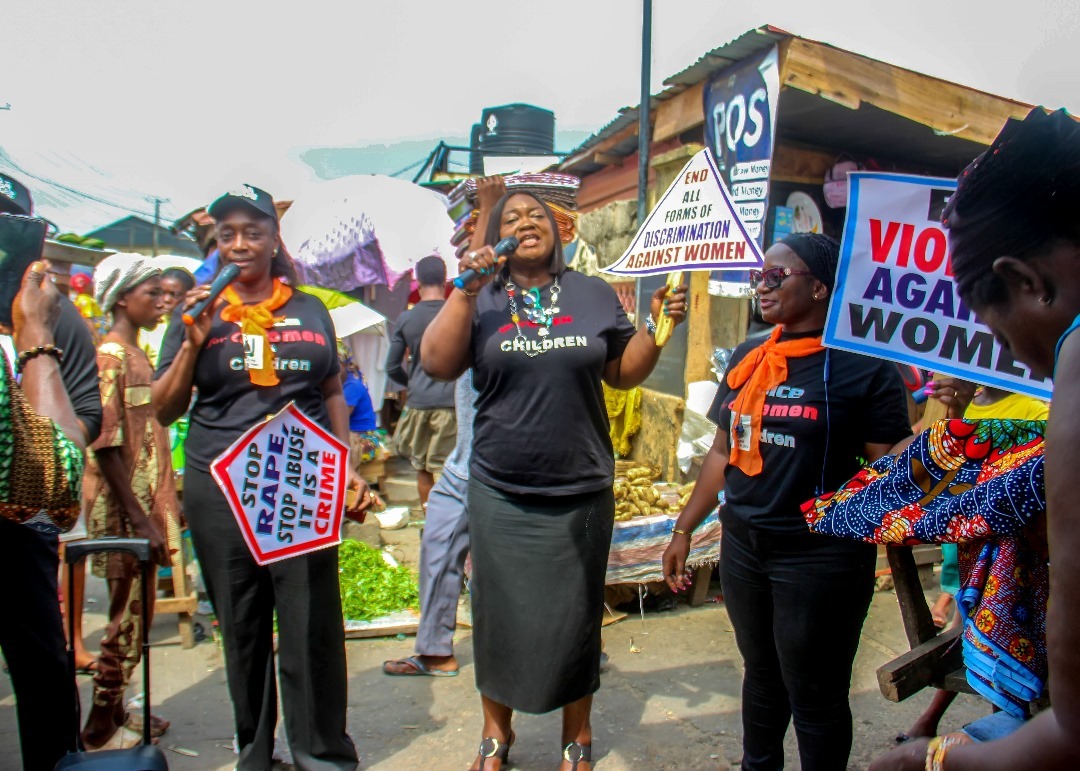
Empowering Communities: FIDA Lagos Champions 16 Days of Activism with Impactful Advocacy Walk in Makoko Market
In a powerful initiative aligned with the global 16 Days of Activism against Gender-Based Violence, FIDA Lagos took to the bustling streets of Makoko market on December 1, 2023, for a compelling Advocacy Outreach and Sensitization Walk. Dressed in vibrant FIDA Nigeria T-shirts adorned with orange scarfs, members of FIDA Lagos brandished placards to shed light on the urgent need to eradicate violence against women and girls.
The dedicated team engaged the community in both English and Yoruba languages, ensuring that their crucial messages reached a wide and diverse audience. The Iyaloja of the market welcomed the FIDAns with enthusiasm, actively participating in the sensitization efforts targeted at market men, women, and girls.
Fliers, bearing essential information and resources, were distributed as part of the advocacy outreach, contributing to the overall awareness creation. The collaboration between FIDA Lagos and the market community proved to be a resounding success, marking a significant step towards fostering a safer and more informed environment.
The 16 Days of Activism campaign serves as a catalyst for change, and FIDA Lagos exemplifies the spirit of advocacy and community engagement in their proactive efforts to combat gender-based violence. Together, they are creating ripples of awareness that have the potential to transform communities and pave the way for a future free from violence against women and girls.
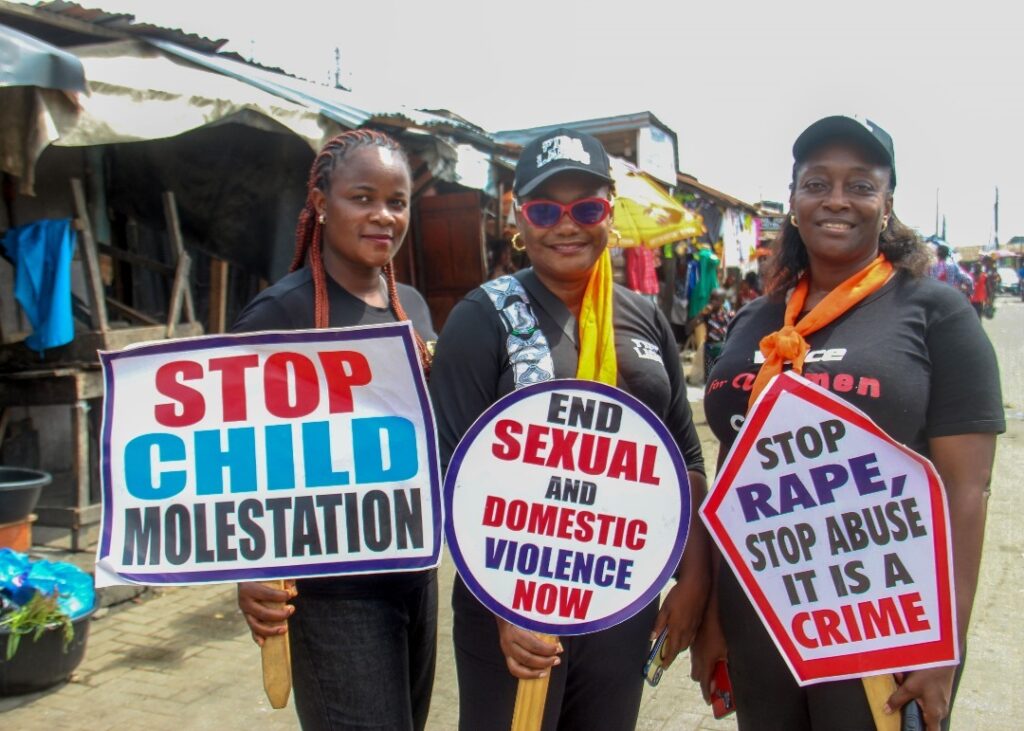
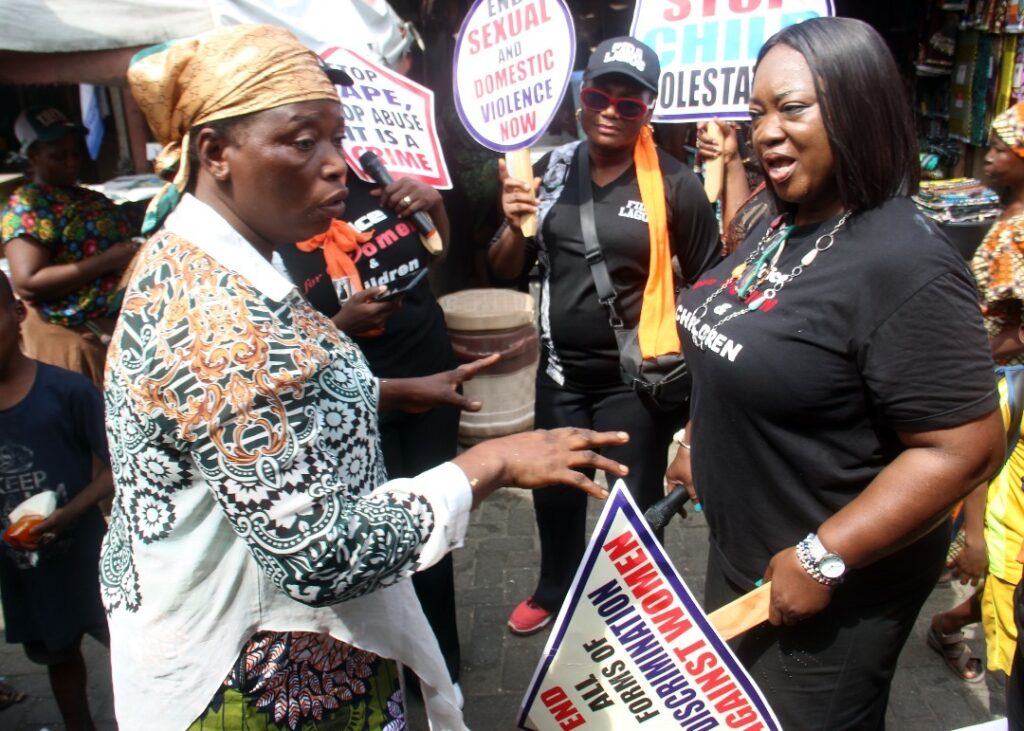
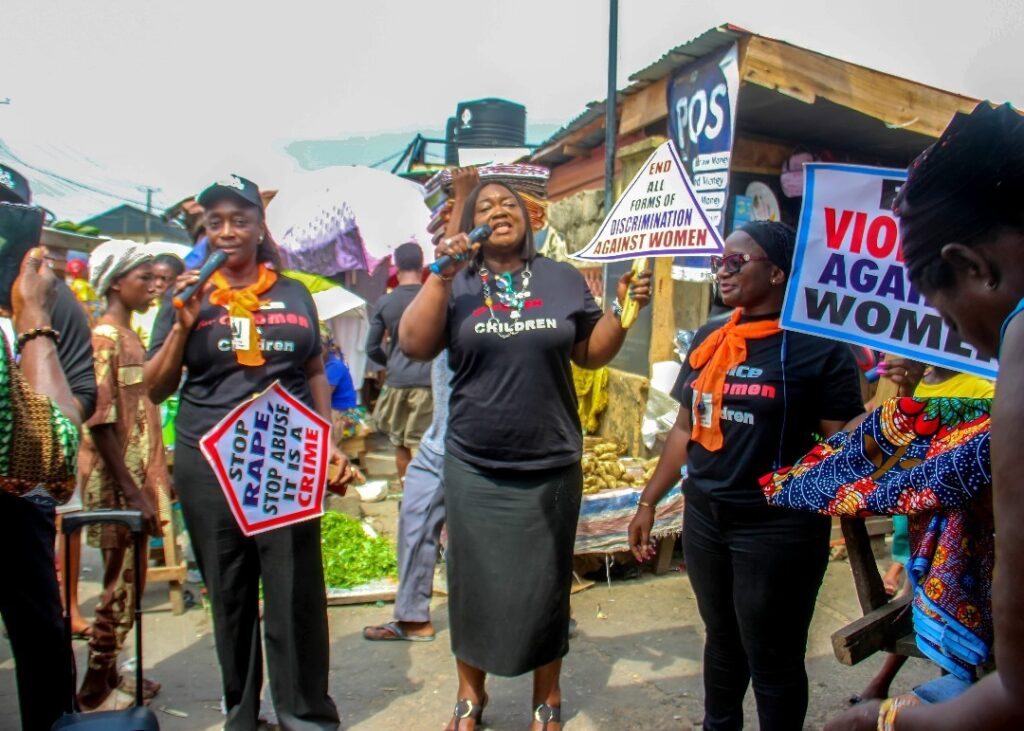
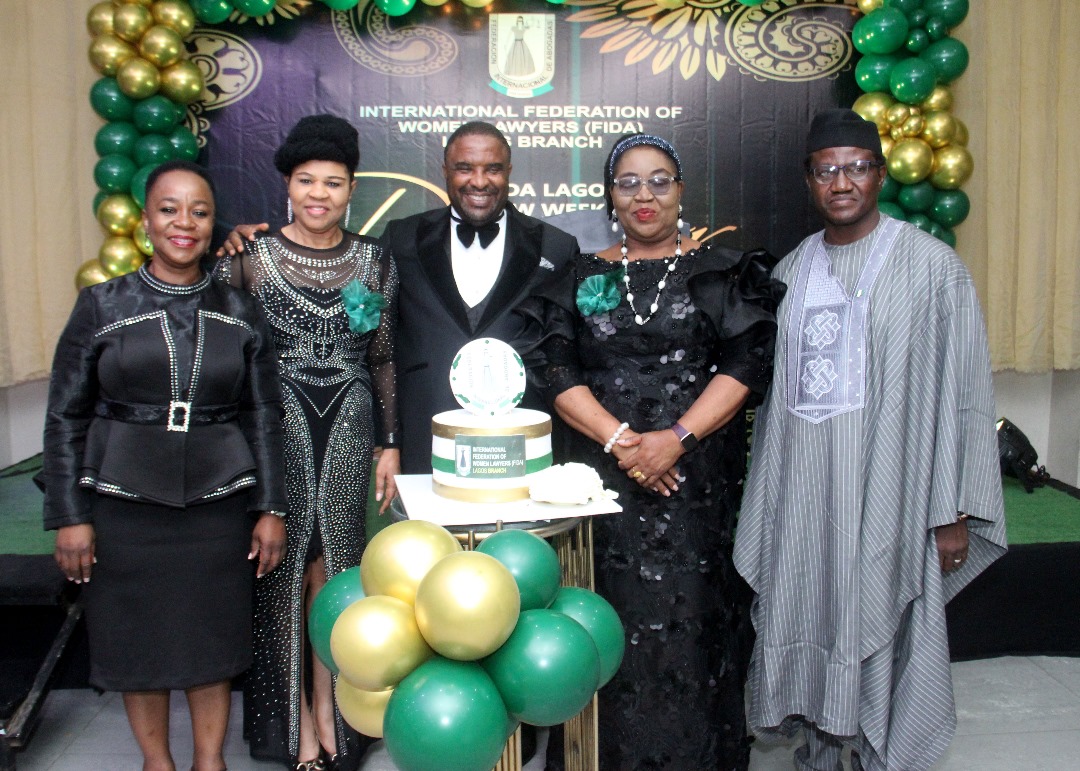
2023 FIDA LAGOS LAW WEEK CONCLUDES ON A HIGH NOTE WITH KNOWLEDGE SESSION AND DINNER
The climax of the 2023 Law Week of the International Federation of Women Lawyers (FIDA), Lagos Chapter, began with an Opening Ceremony on October 30, 2023 at the Nigerian International Affairs, Victoria Island, Lagos.
NEWSWIRE Law & Events Magazine’s correspondent in Lagos reports that the event was, expectedly, graced by legal luminaries and other dignitaries from far and wide, among them the representative of the Lagos State Attorney General and Commissioner for Justice, Mrs. Tomi Bodunde. Others included Mrs. Chinwe Efobi (Chairperson FIDA, Lagos); Chukwuka Ikwuazom, SAN, who chaired the Opening Ceremony; Tobenna Erojikwe, Chairman of the Nigerian Bar Association’s (NBA) Institute of Continuing Legal Studies (ICLE), who served as the Chairman of the Dinner; and Mrs. Uwa Ohiku (the Keynote Speaker). Others who also graced the event were Mrs. Titi Akinlawon, SAN, Mr. Ebun Adegboruwa, SAN; the FIDA Nigeria Country Vice-President/National President Mrs. Amina Agbaje (who was represented by Mrs. Eliana Martins); Prof. Virgy Ebelechukwu Onyene, and Mrs. Joyce Oduah (the immediate past National General Secretary of the NBA).
Both the Chairperson of the Law Week Planning Committee, Mrs. Ada Madu and the FIDA Lagos Chairperson, Mrs. Chinwe Efobi made opening welcome speeches in which they outlined the aims and objectives of the organization, as well as the programs, projects and projections of FIDA Lagos.
The Opening Ceremony was moderated by Uchenna Nwadialo, Alternate Chairperson Law Week Planning Committee.
In his address, Chukwuka Ikwuazom, SAN noted that violence against women and girls was a violation of human rights, and that a victim of gender-based violence (GBV) was unlikely to be productive in the society. The cultural habit of stigmatizing the victims of gender-based violence, he asserted, has deterred many victims from speaking out, thereby allowing the problem to fester in society. The learned silk, who is a former Chairman of the NBA Lagos branch, also emphasized the need for data collection and analysis of reports of gender-based violence in Nigeria.
Mrs. Bodunde, the representative of the Lagos AG, delivered a goodwill message on behalf of the AG, in which she noted that GBV (as referenced by Ikwuazom) affects everyone, irrespective of culture or tribe, and that sexual and emotional abuse, as well as sexual harassment, all amount to GBV, stressing that it is a phenomenon that threatens our progress as a nation. She called for perpetrators to be held accountable for their actions and for all relevant stakeholders to ensure that victims get justice.
Also speaking, the Chairperson of the NBA Women Forum (NBAWF), Mrs. Chinyere Okorocha called for mutual respect between the genders, without which, she said, societal progress was impossible.
Her call was echoed by Dr. Inkem Boerner, a member of the German Council, who situated mutual respect within the context of fundamental human rights. The representative of Mrs. Amina Agbaje (Mrs. Eliana Martins) also delivered a goodwill message on her behalf, after which the ceremony was declared open by the former NBA Lagos Branch Chairman.
In her much-anticipated Keynote, Mrs. Uwa Ohiku began on a personal note, narrating her growing up experience. Her father, she said, was a staunch protector of the girl-child rights – a situation which has had a salutary effect on her today. On the converse side, she notes with dismay the rate at which women are being killed as a result of GBV; the youngest victim, she recalled, was an eight-month-old baby, and the oldest, a 75-year-old woman. The Keynote Speaker reiterated the need for our girls to be taught how to be confident, as well as the need to raise our sons in a respectful manner. She also called for a cultural paradigm shift in which women are welcomed back to their maiden family homes when they return (or flee) from failed or abusive marriages instead of being sent back, willy-nilly, sometimes without any questions asked.
Always a compelling speaker, Mr. Ebun Adegboruwa, SAN defined GBV, quoting the Council of European Union Convention, as any act that is likely to result in the physical suffering of women, or any form of harm perpetrated as a result of a person’s gender. He noted how the birth of a male child is highly celebrated in some parts of the world while girls’ are not – a situation which, he said, results in the impression of the dominance of the male child, while messing up a girl’s self-esteem. The learned silk challenged FIDA to collaborate with the National Ministry of Women Affairs in a bid to get the correct data and statistics database that can capture accurately the figures of GBV violence. In this respect, Adegboruwa noted that Section 34 of the Nigerian Constitution states that every citizen is entitled to be treated with dignity, and that widows or orphans are also victims (or potential victims) of GBV – among whose causes he enumerated to include poverty, conflict and wars, stress in the home due to economic factors and the transfer of aggression. This atmosphere of violence, he asserted, has helped in the spread of HIV/AIDS, as well as gender stigmatization and ostracization.
The Senior Advocate of Nigeria also gave the preventive measures to include: education, data collection, early intervention programs (such as the naming and shaming of sexual offenders, an initiative, it would be recalled, of the former First Lady of Ekiti State, Erelu Bisi Fayemi; training programs for professionals, legal reforms and community engagements). Adegboruwa noted that over 39% of women experience violence before the age of 15, and called on relevant stakeholders to take steps to eradicate any behaviors that consign women to an inferior station in life. The legal luminary recommended a partnership between FIDA and the legislature at federal and state levels in making laws that stem violence against women.
On her part, Prof. Virgy Ebelechukwu Onyene admonished the society to stop encouraging girls to look out for rich men to date or marry as that in itself is an invitation to GBV. She also noted that GBV starts with people hating one another, especially women.
Congratulating FIDA on the success of her Law Week, another speaker, Mr. Olumide Kayode insisted that there could not be a meaningful discussion of domestic violence without mention of GBV, as well as the roles of religion, illiteracy, and poverty. He noted that one in every four marriages would end in divorce in 2 years, according to current studies (and this includes so-called Christian marriages). He lamented that women are being killed by their partners every year. Sexual violence, he disclosed, happens mostly in uncompleted buildings or in perpetrators’ homes, and called on families or cultures that send victims back to their abusive marriages to desist, calling such a practice a violation of fundamental human rights. God hates divorce, he acknowledged, but that victims of GBV are more likely to develop bad behavior within the marriage – which makes divorce even more likely. Kayode concluded his intervention by commending the Lagos State Government for establishing Family Courts, but called for the seating frequency in these Courts to be increased from just once a week, as is presently the case. He also canvassed for more Judges and magistrates in the state.
NEWSWIRE correspondent reports that the ceremony came to a close with the much-anticipated FIDA Law Week Dinner, which was chaired by Tobenna Erojikwe, Chair of the NBA-ICLE. Among other items on its packed program, the event featured the presentation of plaques to the respective speakers, against the backdrop of fine dining and wining, as well as mellow music, as guests explored networking opportunities.
The Dinner came to a close (bringing to an end the events of a highly impactful week of celebration following the vote of thanks by Ada Mmadu, Chairman of the Law Week Dinner Planning Committee.
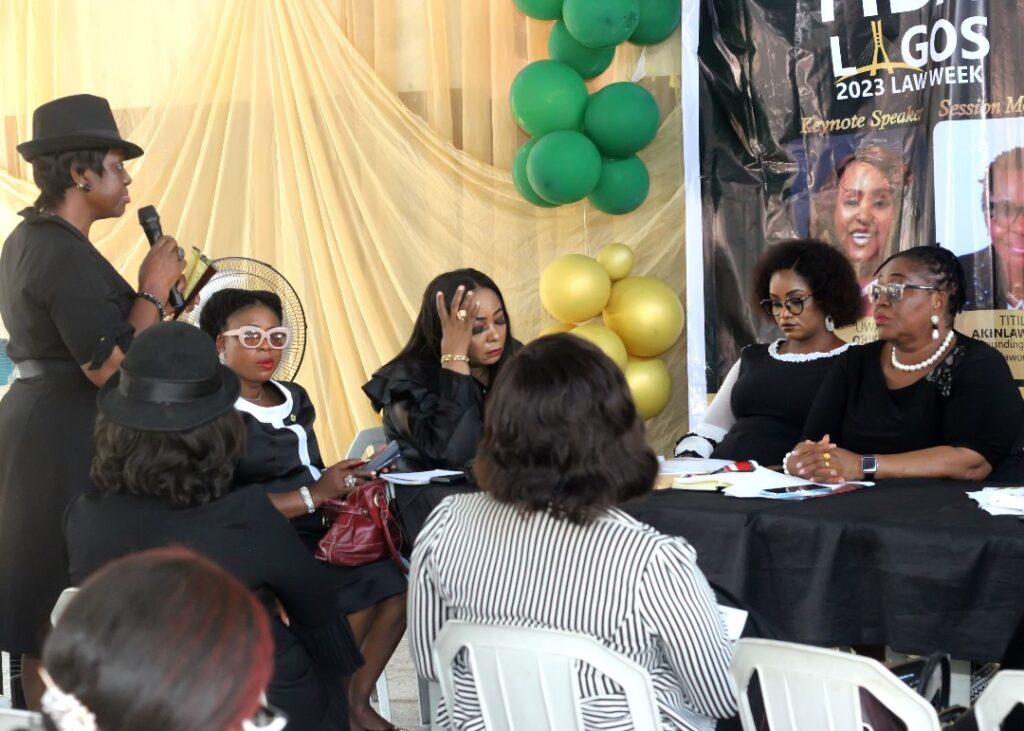
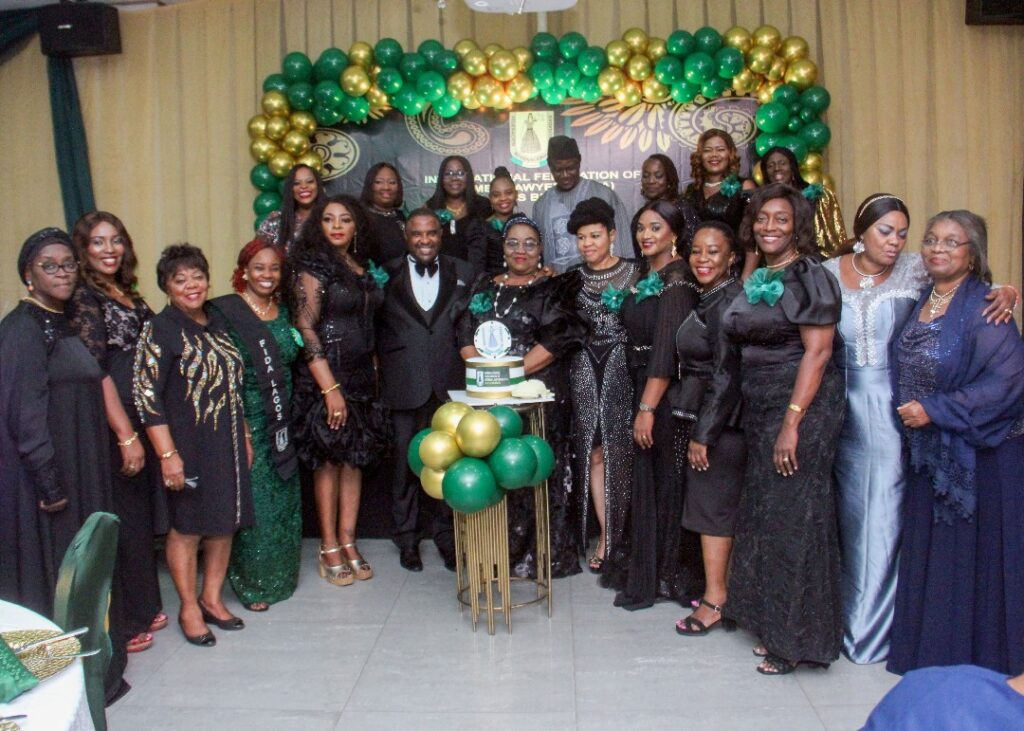
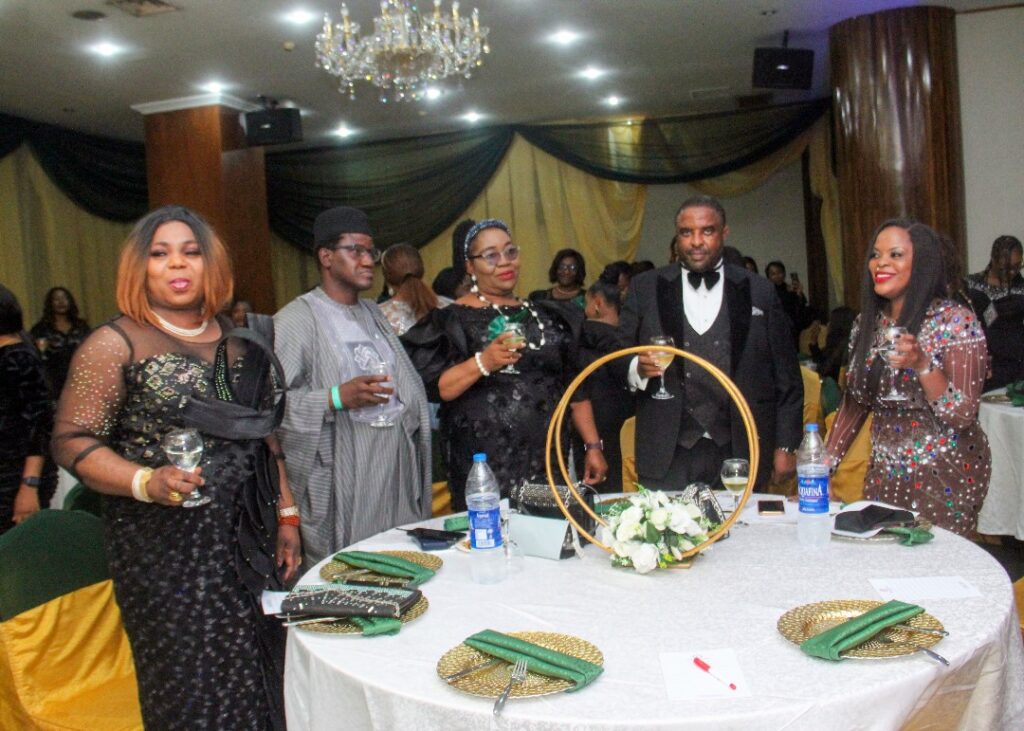
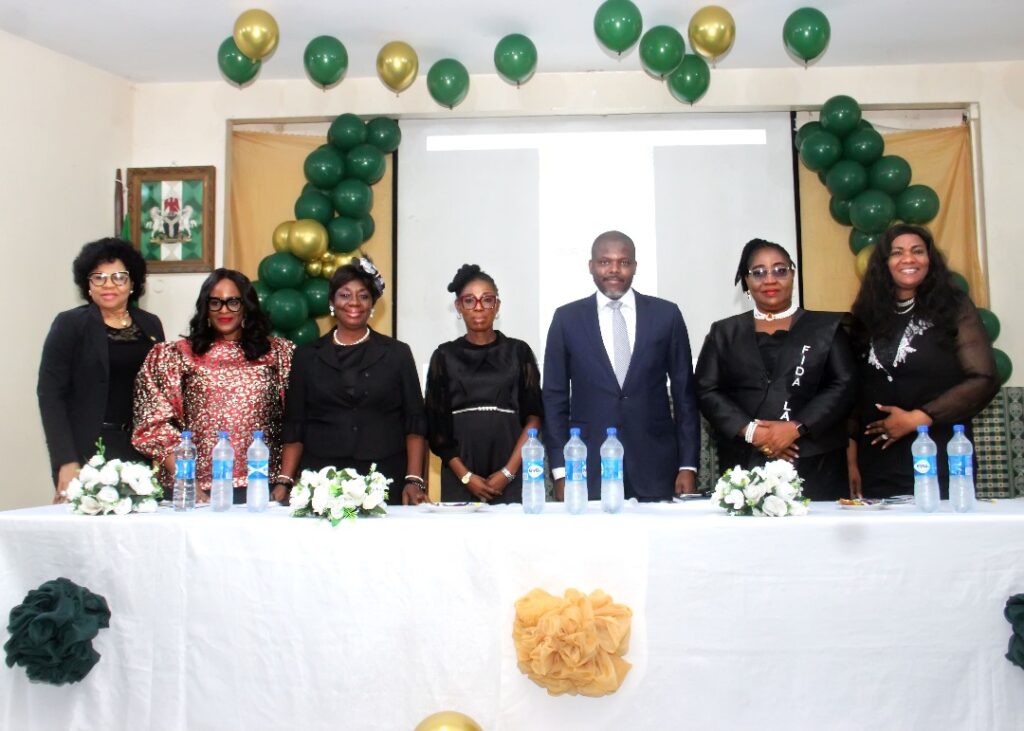
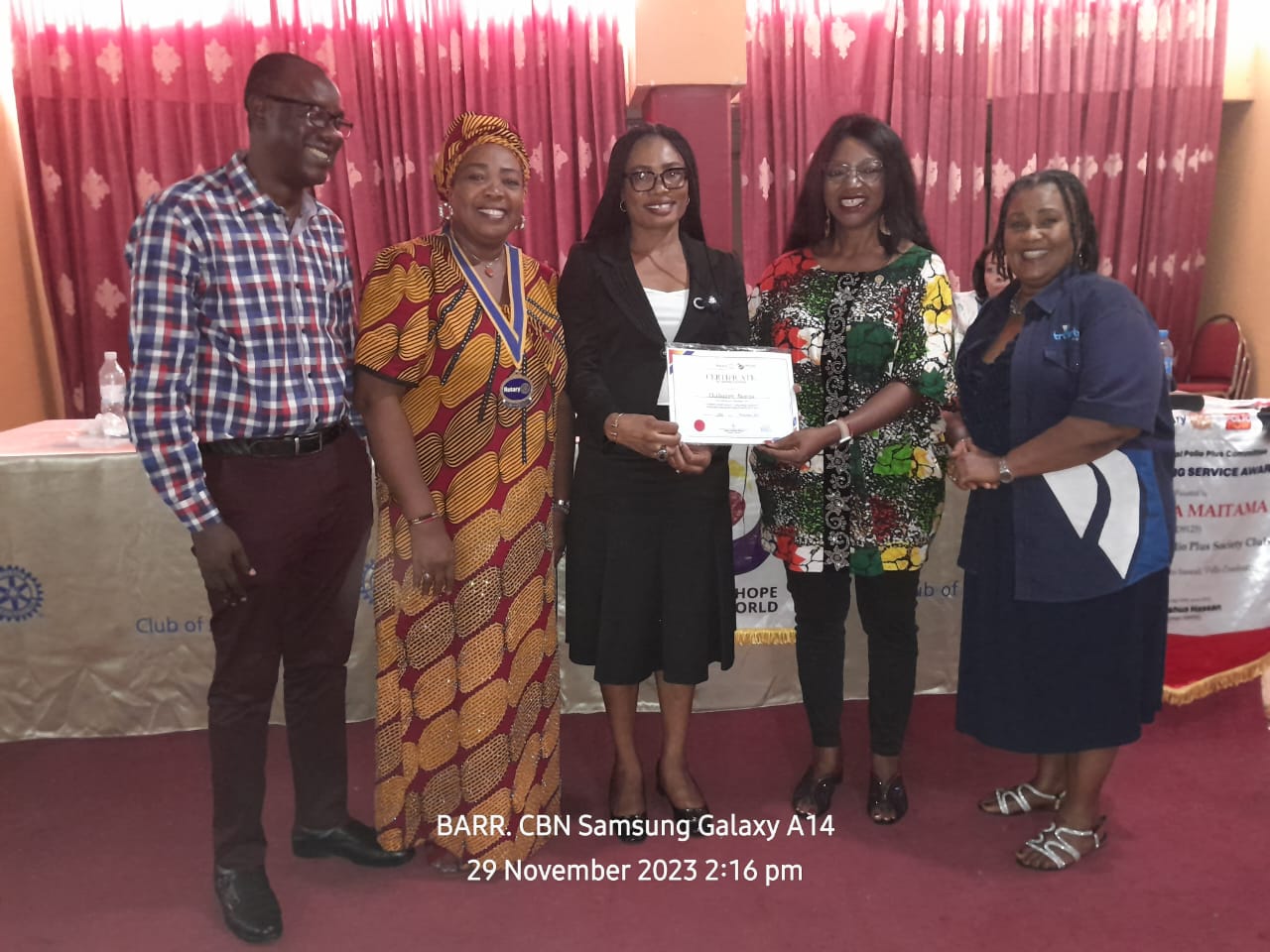
FIDA Abuja Empowers Rotary Club of Abuja with Knowledge on Combating Gender-Based Violence
In a proactive move towards raising awareness and fostering understanding on combating gender-based violence (GBV), FIDA Abuja extended its reach to the Rotary Club of Abuja’s weekly fellowship. The event, hosted by the President of the Rotary Club of Abuja, Rtrn. Ijeoma Agwu Joyce, took place on November 29, 2023.
The purpose of the meeting was to engage in discussions and promote actions aimed at preventing and addressing gender-based violence in society. Representing the FIDA Abuja Branch in the absence of the Chairperson, Vice Chairperson Francisca Akaniro Opara took the stage and delivered a compelling presentation on the topic “Know your Rights,” focusing on the Violence Against Persons Prohibition (VAPP) Act of 2015.
Vice Chairperson Opara highlighted the comprehensive nature of the VAPP Act, which prohibits all forms of violence against individuals in both private and public spheres. She emphasized that the Act provides maximum protection and effective remedies for victims/survivors of sexual and gender-based violence while ensuring the punishment of offenders. Opara urged every citizen to familiarize themselves with this crucial tool.
In showcasing FIDA’s commitment to the fight against gender-based violence, Vice Chairperson Opara elaborated on the organization’s advocacy and sensitization programs in communities. She underscored the importance of creating awareness about the provisions of the VAPP Act of 2015. Additionally, she shared the various solutions FIDA offers to GBV victims, including empowering women and girls, providing cash support, economic empowerment initiatives, educating the girl child, and offering counseling services (pro bono) as well as free legal representation in court.
The interactive session saw a plethora of questions from the engaged members of the Rotary Club, all of which were satisfactorily addressed by Vice Chairperson Opara. In a fitting conclusion to the insightful session, a certificate of appreciation was presented to the Chairperson of the FIDA Abuja Branch, Chibuzo Maureen Nwosu, with Vice Chairperson Opara graciously accepting it on her behalf. The collaboration between FIDA Abuja and the Rotary Club of Abuja serves as a commendable effort to collectively combat gender-based violence and foster a safer, more informed community.
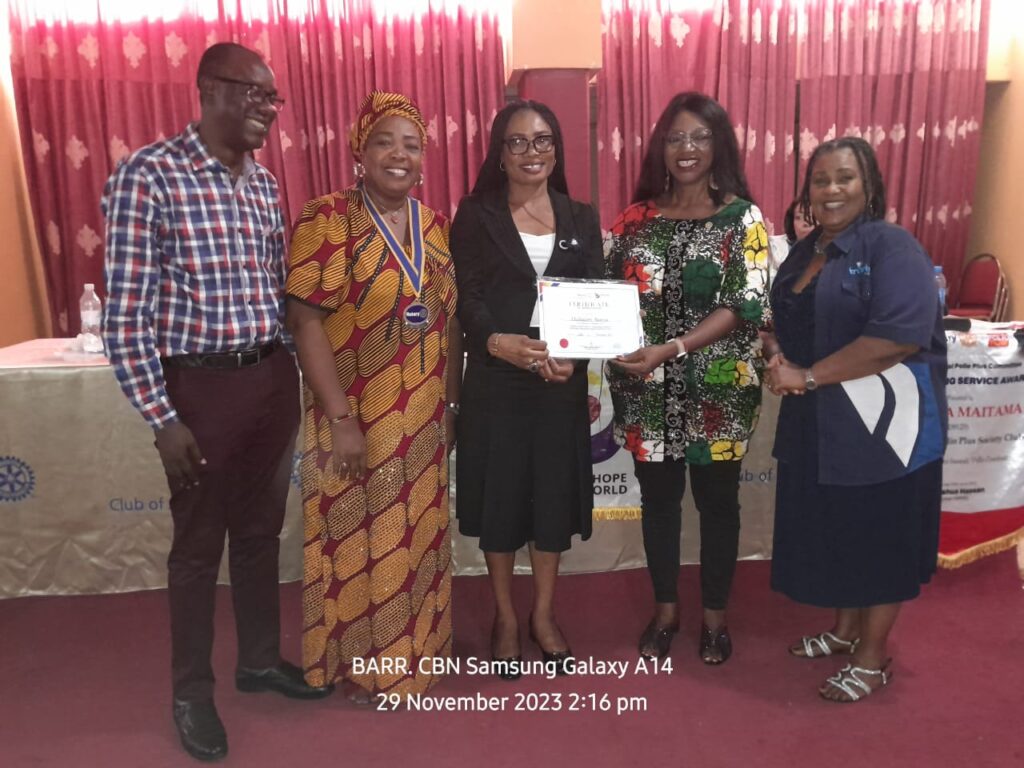
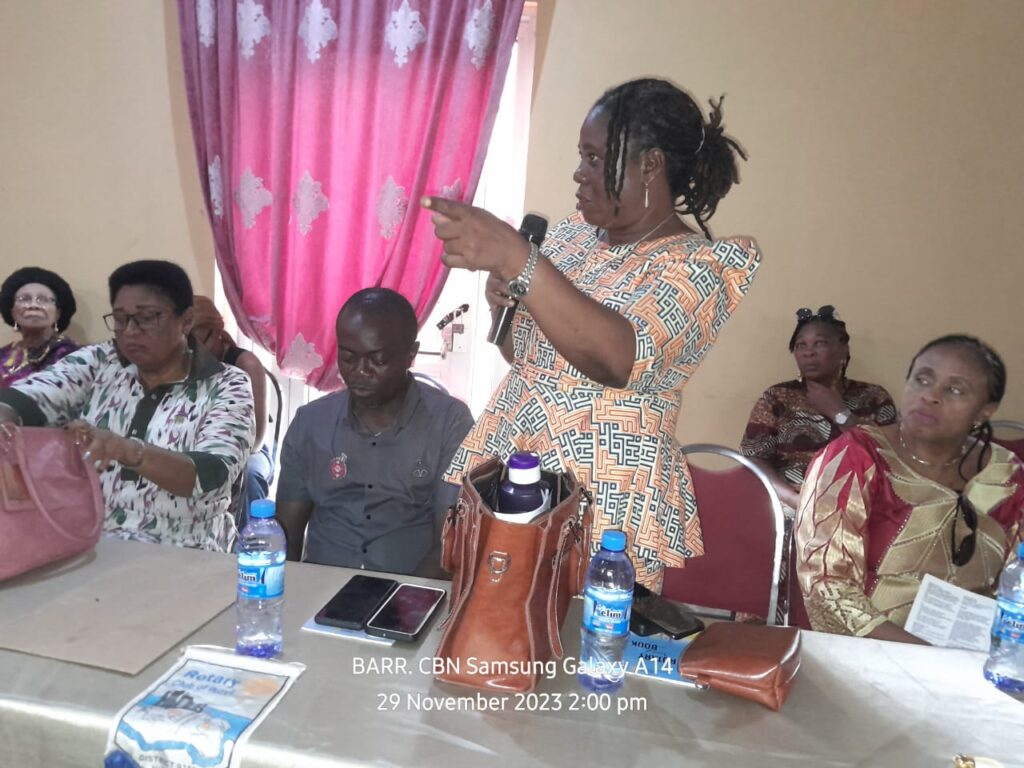
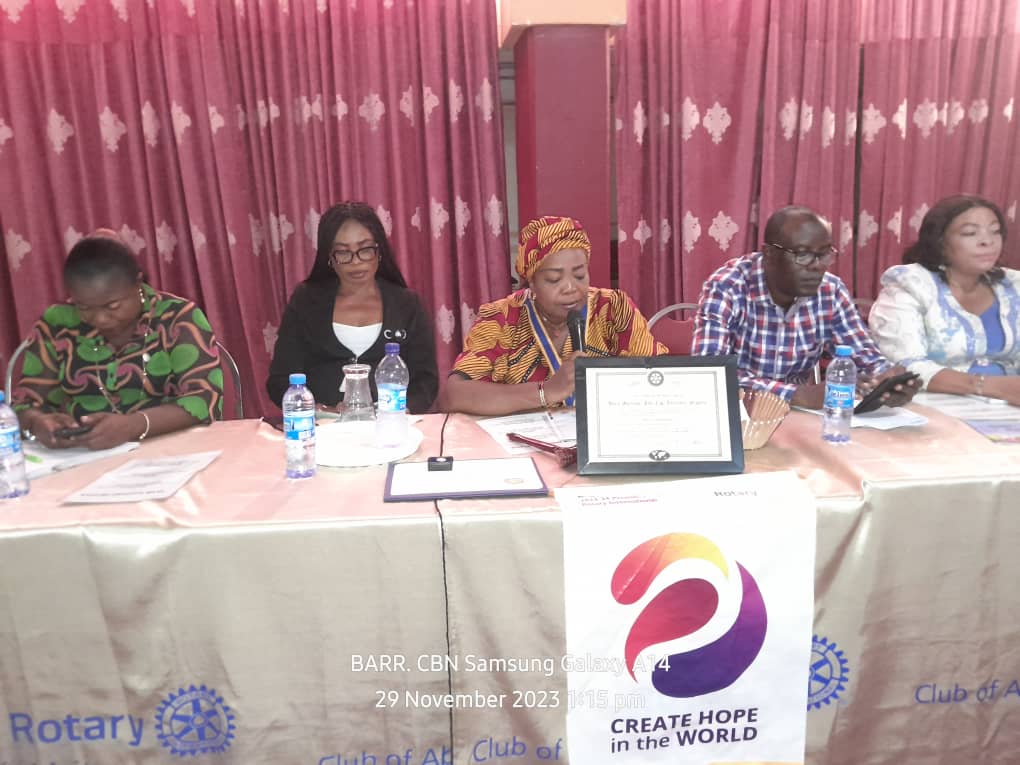
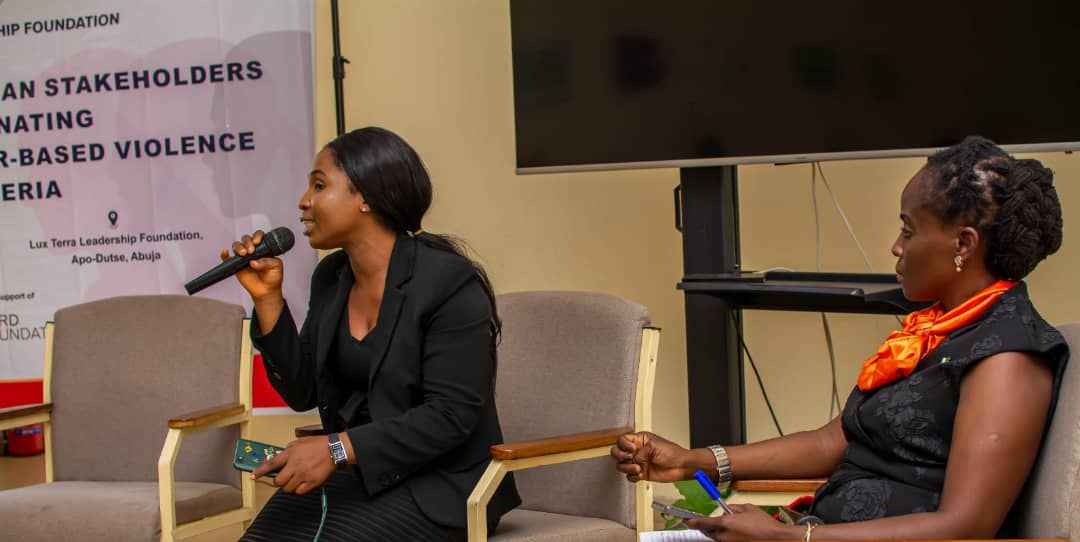
Empowering Change: FIDA Abuja Champions a Safer Society through SGBV Awareness and Advocacy
On November 28, 2023, the FIDA Abuja branch proudly accepted an invitation from the Lux Terra Leadership Foundation to participate in a series of training workshops aimed at eradicating Sexual and Gender-Based Violence (SGBV) in Nigeria. This event marked a crucial step in fostering awareness and empowerment during the 16 Days of Activism.
The workshops, strategically designed for Christian Religious leaders, Community Leaders, and Stakeholders, were geared towards equipping participants with the knowledge and skills necessary to eliminate SGBV in Nigeria.
Taking the stage as a special guest speaker, FIDA Abuja’s Publicity Secretary, Olosen Victoria Ibiezugbe, provided valuable insights into the key provisions of the Vapp Act and elucidated on the mechanisms for reporting SGBV cases. In emphasizing FIDA’s pivotal role in the fight against SGBV, she highlighted collaborative efforts with the Police, NAPTIP, and other organizations, underscoring the organization’s commitment to combatting SGBV through sensitization and awareness initiatives in the FCT communities.
To facilitate the prompt reporting of SGBV cases, the Publicity Secretary shared FIDA’s rapid response numbers and those of relevant agencies. She urged participants to consider reporting such cases a social responsibility and suggested the establishment of a Gender Desk in churches to streamline reporting processes. Importantly, she emphasized the need for respecting survivors’ rights to safety, confidentiality, and non-discrimination.
As a notable outcome, it was collectively decided at the close of the event that Clerics and Stakeholders would mobilize teams within their communities to actively combat SGBV. This resolution reflects a shared commitment to creating safer environments and fostering positive change.
